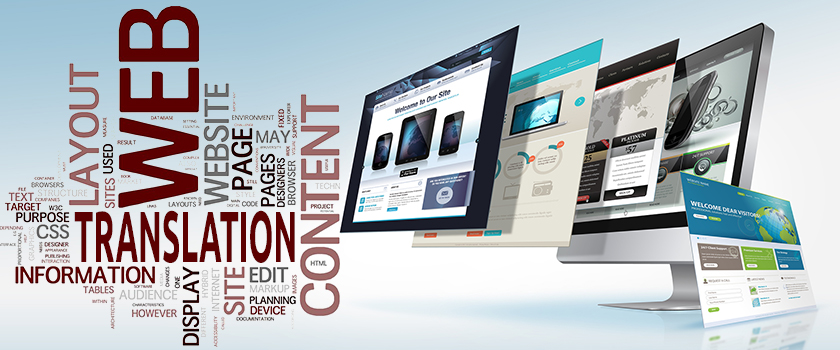2025 Offer Request a Quote Today and Grab a $50 Coupon for Free!
The healthcare and medical field is one of the most rapidly advancing fields, thanks to new researches and medical breakthroughs every day. With this advancement in medical science and researches comes the need to expand beyond the current markets. While it is true that expansion beyond the current markets can bring growth for a company, language barriers are the main hindrance that companies face when trying to step outside their native markets. And this is where medical translation comes in.
As pharmaceutical companies search for potential markets, the search for reliable medical translation services is a must. But before these companies step outside, they must take into consideration some compliance issues, abide by some laws and translate some critical documents that are compulsory for a hassle-free expansion. Clinics and hospitals should also make sure the information they hand out to patients is accurately translated in order to enable patients to make informed decisions about their treatments and medical procedures.
Although all laws are subject to change, these laws are the ones that impact medical language the most:
Not all people can speak and understand English, which is why it is imperative for healthcare workers and medical practitioners to provide translation and interpretation services for patients with Limited English Proficiency (LEP). By following this Act, healthcare workers will ensure their instructions and guidelines are understood properly by the patients. Furthermore, they might need to have an interpreter or a translator with them in case the patients want to communicate.
Health Insurance Probability and Accountability Act (HIPAA) and Protected Health Information (PHI)
One important consideration that must be kept in mind when dealing with medical translation is confidentiality and patient privacy. This is why the translators delivering medical translation services need to have complete knowledge about HIPAA compliant translations. An error in interpretation is a matter of life and death, especially in medical translations. HIPAA form is a United States legislation that provides data security and privacy provisions in order to safeguard sensitive medical information.
Focusing particularly on keeping patient information confidential, HIPAA is designed to protect patient privacy. The protected health information refers to information that is individually identifiable such as patient history, insurance information, medical test results, and other forms.
Some of the key documents that need to be translated in the medical field are listed below. These are the documents that are considered vital and must be available in the languages which are commonly spoken in the community:
Termed as one of the most basic forms and most important of the paperwork, the patient information form contains all the details concerning the patient’s contact information, medical history, current medications and even test results. Along with this form, some clinics also hand out questionnaires to patients requiring details of their treatment as a guide for future patients.
Language assistance is provided by many of the clinics today but most patients are not aware of that. Assistance is provided to the patients before treatment, entailing language options for them. This is why it’s important to get this document translated for helping the patients choose from among the languages for assistance.
Before the treatment starts, patients are given a consent form to sign. This form may include consent to release HIPPA information, consent to treatment, procedures, and immunization. To ensure all patients understand this form, it is important to translate it in their native languages and that is possible with the support of a reliable agency that delivers expert pharmaceutical translation services to its clients.
Some patients are required to undergo a clinical procedure or anesthesia that may have clinical consequences. Before these procedures can be undertaken though, the intake form is issued to inform the patient about these consequences. A translated intake form is better able to convey the details of the procedures being undertaken by the patient.
Be it information about the clinical procedure or a surgery, patients need to have a complete idea about their treatment. This form contains the complete set of instructions for patients and need to be properly translated in patients’ native languages for easy understanding. An untranslated instruction form will be of no use to the patients who need instructions regarding their clinical and medical procedures.
To be able to make informed decisions regarding their health, patients need to have a document that maps their progress. A document that shows how a patient is progressing would require translation for easy understanding and comprehension which is why it is necessary to get this document translated.
Before a patient is discharged from the hospital, he/she may be required to fill a form inquiring about any complaint. In order to improve clinical services and fill any gaps in their medical system, hospitals need to have these complaint forms translated so that they can be assured their patients’ complaints are heard.
Medical translation and interpretation require a careful and precise approach in order to ensure all the sensitive patient information is translated fully and professionally. In order to avoid any errors in translation, it is imperative that hospital authorities and clinics hire language experts or agencies which can translate the forms in multiple languages. This will ensure patients are able to understand all the given information easily.
Translation and interpretation are two of the difficult, yet extremely important parts of providing a service, especially when it comes to the field of medical sciences. Clinics and hospitals should ensure their forms are translated in multiple languages so that patients can understand and comprehend the given information. For this, clinics must hire the services of expert and professional agency which can deliver them professional and accurate medical translation services. Only then the patients can make informed decisions concerning their treatments.

Language variations are quite noticeable every few miles, reflecting the unique identity of each region. Talking about India, the country
Read more
The term ‘woke’ has come from the black culture and now it has been removed from its origin after it
Read more
Mars Translation provides high quality and professional Certified French Translation Services all over the world. We have a team of
Read more
Mars Translation provides one of a kind professional Chinese Document translation services all over the world. All of MT’s translators
Read more
MarsTranslation provides one of a kind Chinese Legal Translation Services. We have a team of native Chinese linguist who specialize
Read more
Chinese Certified Translation services is one of the most asked for service at MarsTranslation. We believe in providing quality services
Read more
Mars Translation is one of the fastest growing companies in the translation industry. This is the reason why we pay
Read more
MarsTranslation has a huge team of website translation specialists in more than 230 languages. Our translators are constantly supported by
Read more
Mars Translation provides high quality and professional Certified Spanish Translation Services all over the world. We have a team of
Read more

